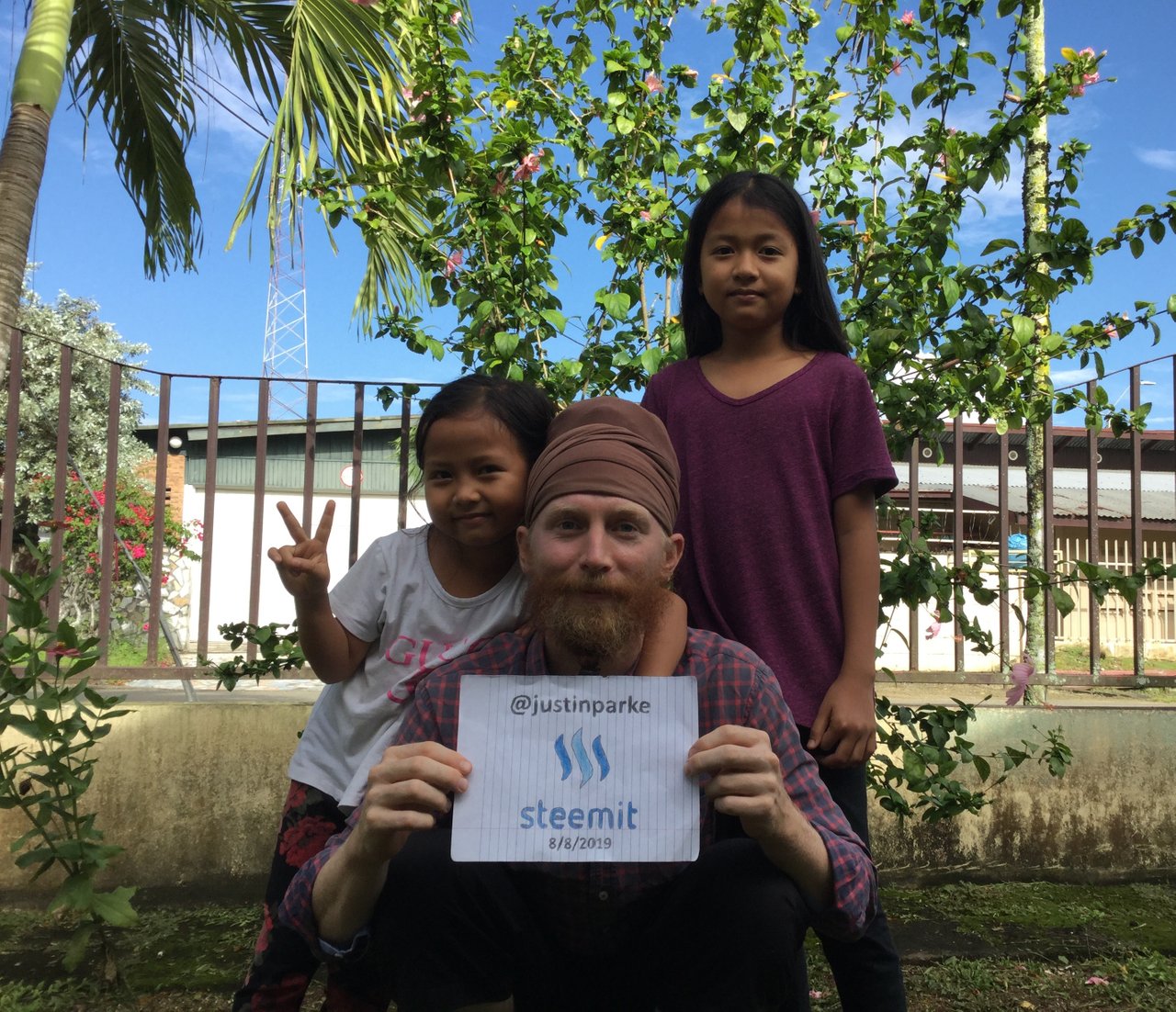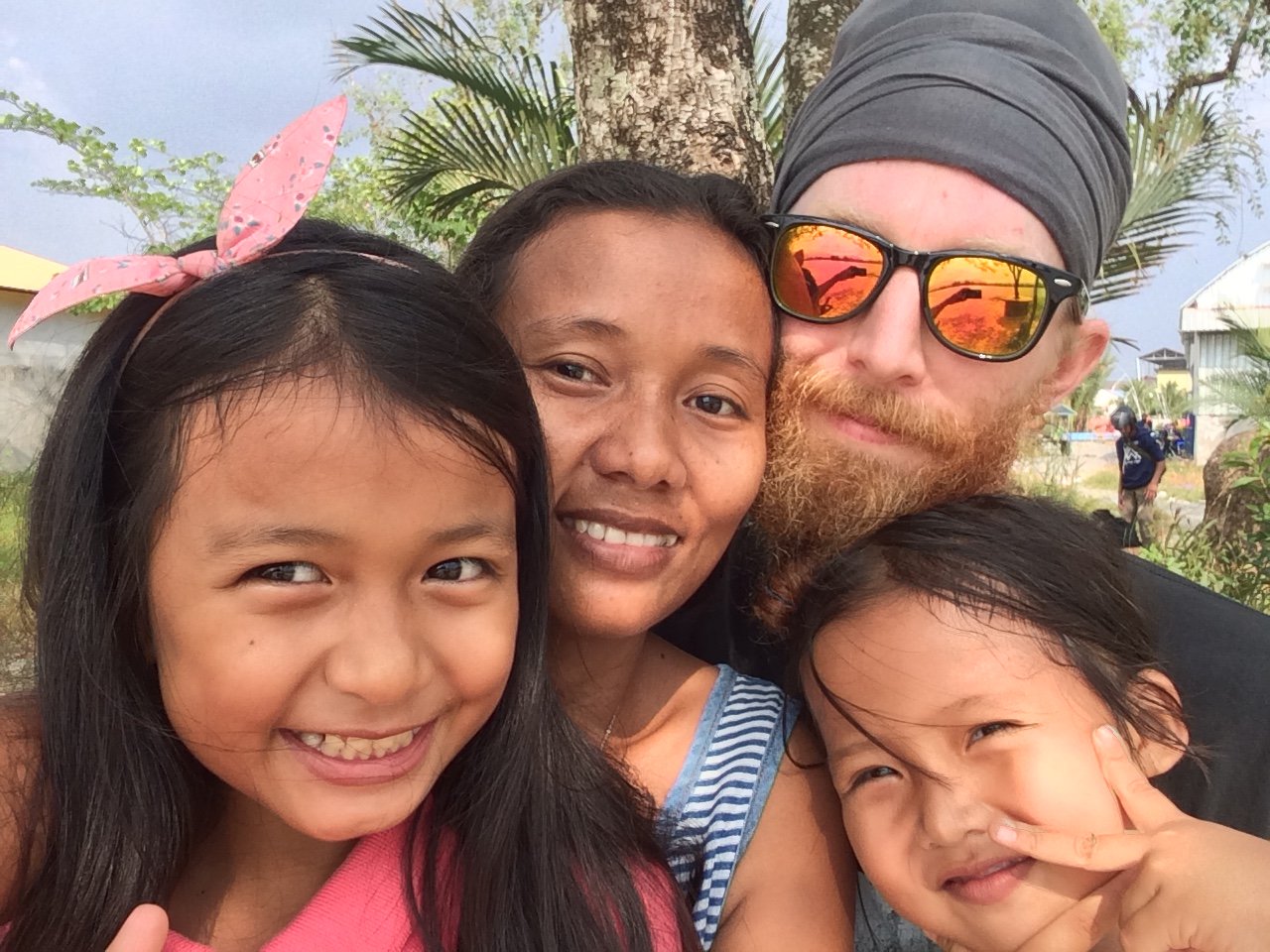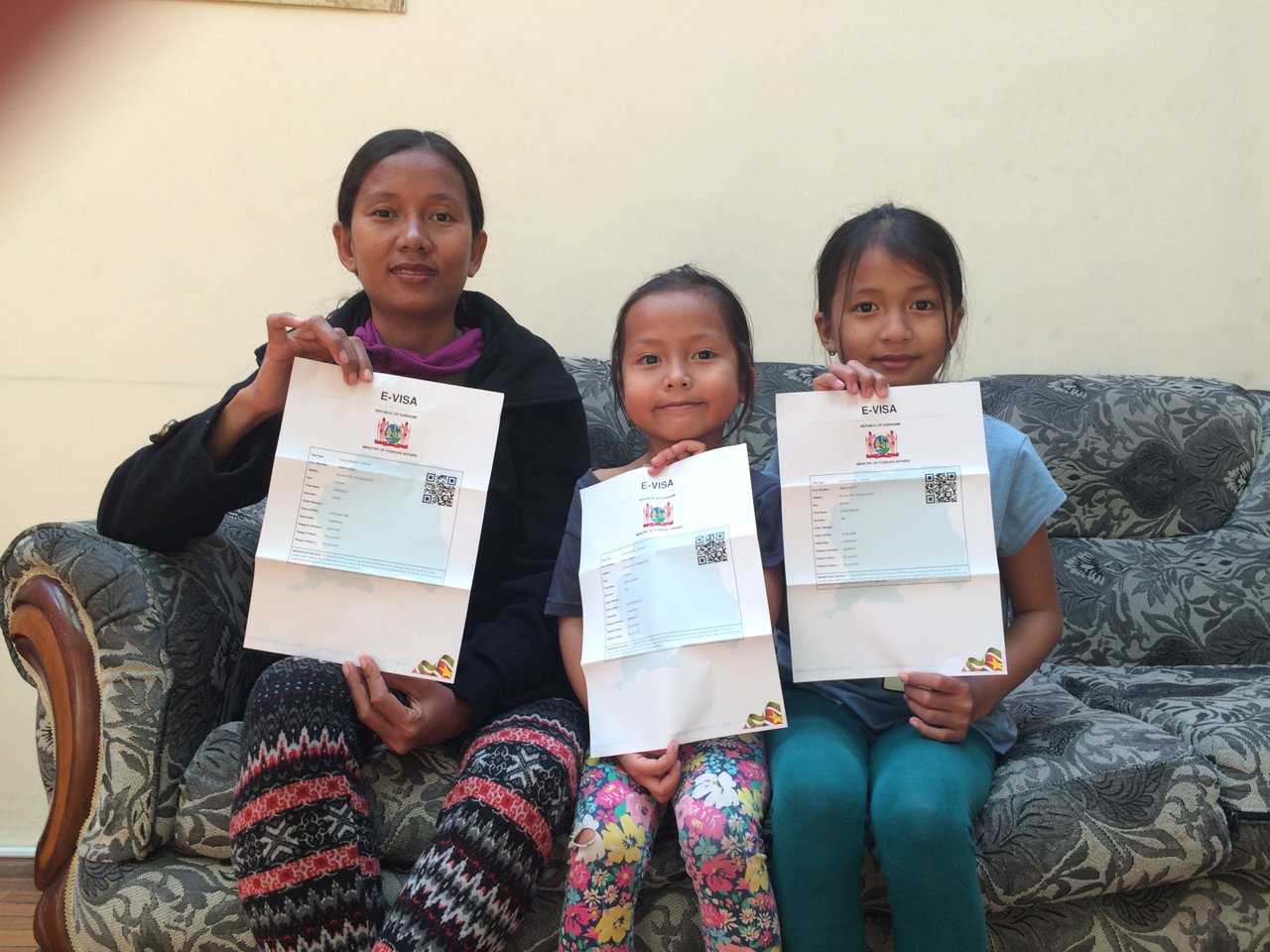Would you read my story to discover how we began this journey together on #steemit?
Would you please share your story with us in the comments below to help us get to know you?
While living in Cambodia, I met Jan Schets (@menta), who informed me about Steemit. I'm not sure how we first met, but it may have been my Khmer Conversation Classes, which I taught in Kampot, Cambodia. At that time I was also learning WordPress, SEO and all the other basic skills to build one's first website. In addition to teaching Cambodian and English and learning how to create a website, I was very busy running a restaurant and doing several other side jobs that prevented me from having the time to create and manage the website idea I had in mind. However, as the years passed, I had not forgotten Jan mentioned that Steemit was a faster and easier way to get some content online without the full commitment and time it takes to manage a website. Jan Schets is a wise man, and was a valuable resource while I was learning WordPress and SEO, as he is a bit of wizard with those things. So it is with @menta in mind that my family and I start this Steemit journey together.
My name is Justin Parke (@justinparke), and I am a self-exiled 36-year-old American living in Suriname with Sreypov Heng, my lovely Khmer wife. We have two daughters, Srey Yuu (10 years old) and Sakana (5 years old), both born in Cambodia.
You, like most people, probably already have many questions, such as: "Why do you live in Suriname?", "Where is Suriname?", "What is Khmer?", "Where is Cambodia?", "How did you all end up in Suriname?" and more. Well, one of the biggest reasons we have joined Steemit is that we feel our life together and how we met is a very interesting story, perhaps even worthy of being shared. Many friends have recommended for several years that we share our story together in blog form, and we felt Steemit is the right platform for this tale. Most important of all, we finally have some time to do it. Thank you for making this journey with us and I appreciate you taking the time to read the beginning of this introduction.
Here is a link you might find useful to match with my facebook account.
https://www.facebook.com/justinkparke
Will you try reading more because now I am about to share the really interesting stuff?
My family and I are here in Paramaribo, Suriname, going through the immigration process as we adapt to life in a new hemisphere. It's a long and twisted tale of how we ended up here in Paramaribo, Suriname, from Kampot, Cambodia. I believe this tale is fit for a series of short stories to be uploaded here on Steemit, and to be read by those who find it interesting. I am not sure exactly what style or form our Steemit blog will take just yet, but I hope to deliver bits and pieces of our history and how we met, as well as glimpses into our daily life here in Suriname. Perhaps think of this blog as part Suriname travel blog, part mixed-culture family stories and part immigrants' tale. I will try to give you a brief summary of the events that led to the creation of our family and our relocation to Suriname.
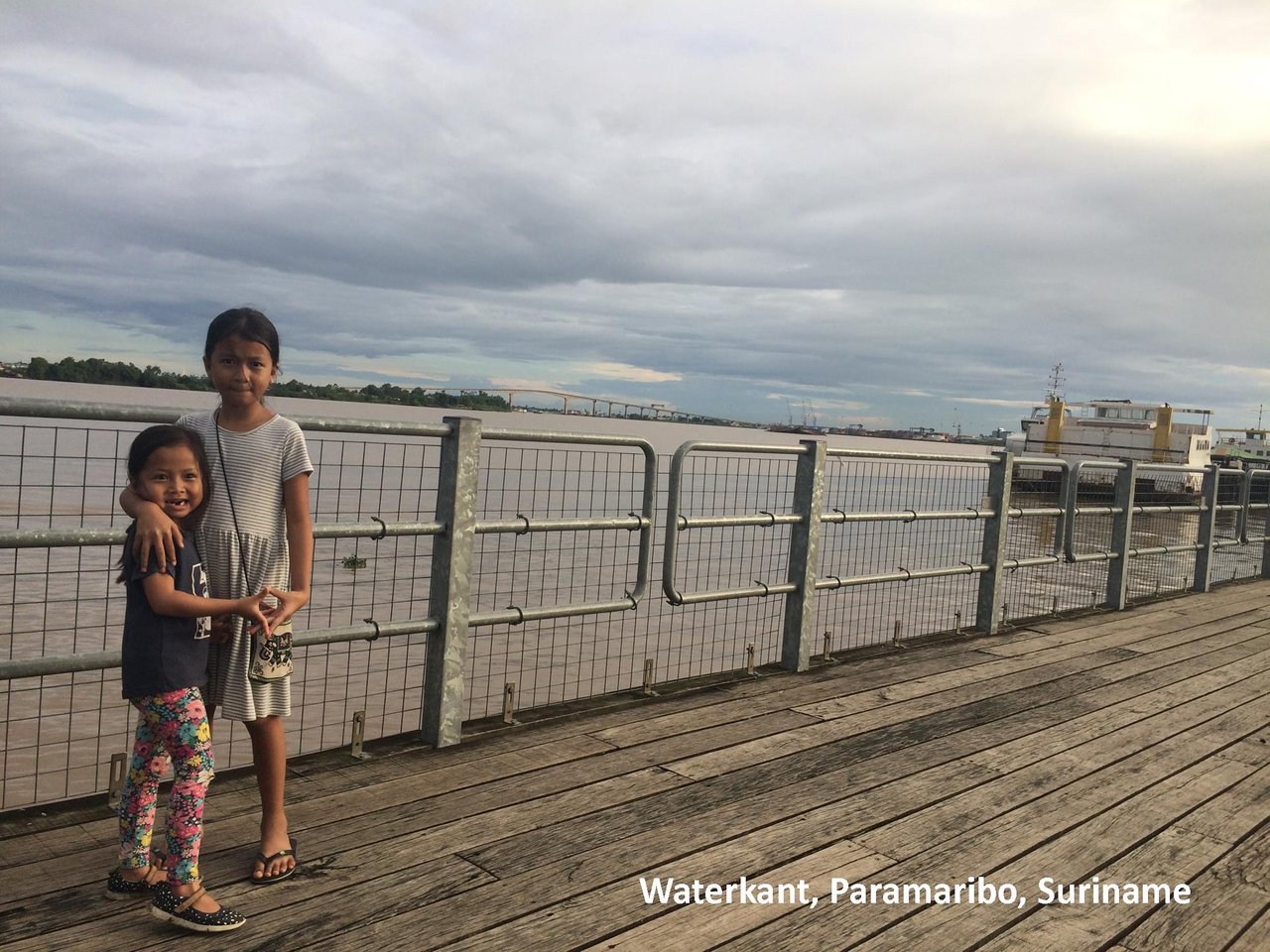
Before we delve in deep I feel I should address the most common questions from above that our family receive as we meander through various countries, languages and cultures, trying to find our forever home.
| #1 | "Why do you live in Suriname?" |
We have only lived in Suriname for about three months, so this is still a new question for us. However, it is a common question the locals ask once they realize we aren't natives. The best answer I have is that Suriname met the conditions and parameters we agreed upon before embarking on our exodus from Cambodia. This is a topic big enough for it's own post, but one of the most important factors was it's proximity to the USA. Of the roughly 10 years I lived in Cambodia, I didn't receive any family visitors. As our daughters get older, so do my parents in the USA. I hoped bridging the gap a bit by relocating to the western hemisphere would increase our chances of my American family members getting to know my Cambodian family members. The multicultural dynamics, the weather, and the flora of Suriname also were big factors in our relocation. Sreypov and I are chefs/restaurateurs, and Suriname has many of the fresh ingredients and spices we were accustomed to using in Cambodia.
I should mention that I already tried to immigrate to Suriname two years ago, and my visa was denied, but that is a future post which is a story in itself. As of April 2019, a new e-visa option made it possible for my Cambodian family members to come to Suriname after all. At the time we were in Quito, Ecuador, midway through the Ecuadorian immigration process. Ecuador was our alternative destination after the financial losses we suffered and time lost due to the previous Suriname Immigration Visa denial. I will explain more about why we chose Suriname originally, why we were in Ecuador, and why we left Cambodia in the first place in a future post.
| #2 | "Where is Suriname?" |
This is a much more easier question to address. Suriname is a small country located on the northeastern coast of South America, bordering Guyana, Brazil and French Guiana. It has a mixed colonial past of English and Dutch rule, with Dutch remaining the official language. There are many more secondary languages, such as Sranan Tongo, Saramaccan, Javanese, Sarnami Hindustani, Akun, Carib, English and more. Strangely, most people whom I've told I live in Suriname generally think it is a country somewhere in Africa. As a Hoosier (person from Indiana), I am familiar with Jim Jones, the history of the Peoples Temple Cult and the Jonestown settlement that once existed in neighboring Guyana, as are most Hoosiers. Jim Jones was indeed one of many strange characters Indiana has produced through the years, and his cult had it's roots in Indiana. Due to this, I unfortunately have to explain to most people in Indiana that I live in the country near Jonestown.
| #3 | "What is Khmer?" |
Khmer is the name for the ethnic group which makes up the overwhelming majority of Cambodia's population, about 97%. The word "Khmer" is also used in place of the word "Cambodian", which is the national language of Cambodia.
| #4 | "Where is Cambodia?" |
Cambodia is a small country in southeast Asia bordering Vietnam, Thailand and Laos. Cambodia has a French colonial history with historical influences from Javanese, Indian, Chinese, and Malay cultures. I have found many people get Cambodia confused with Cameroon. Here in Suriname, the Javanese and Indians always ask if Cambodia is in Asia, which we find shocking. We realize the Javanese and Indian Surinamese have been disconnected from Asia for more than a century, but there is so much Javanese and Indian history in Cambodia, it surprises us that many Surinamese have never even heard of Cambodia at all. People from my home state of Indiana, if they know Cambodia at all, generally know it by way of the Vietnam War, and thus sometimes mention the "Khmer Rouge" or "landmines", or the "Killing Fields".
| #5 | "How did you all end up in Suriname?" |
This question is one for which a simple answer doesn't exist. Where everyone ends up in life has much to do with the choices we have made along the way. I will try and give a brief explanation however because this is only an introductory post. The greatest factor which led us to Suriname was the denial of my Cambodian Residency Visa and Work Permit. I am an American citizen, and Cambodia only grants citizenship to those who pay roughly $50,000 USD, or to those who have 'friends' in high places within the Cambodian government. I had been living in Cambodia without issue for nearly 10 years prior to my visa denial, with some brief stints in Jamaica, Albania and the USA. I had most recently been teaching the Khmer language and culture to foreign residents in my own private school/restaurant. Even considering I am fluent in the Cambodian language and know the history and culture well, my attempts at citizenship without the $50,000 USD donation were met with solid refusals. Without citizenship, a foreign resident can't own land in Cambodia. Land ownership disputes are still a big problem even if you are a Cambodian citizen anyways, with the richer party generally winning the dispute.
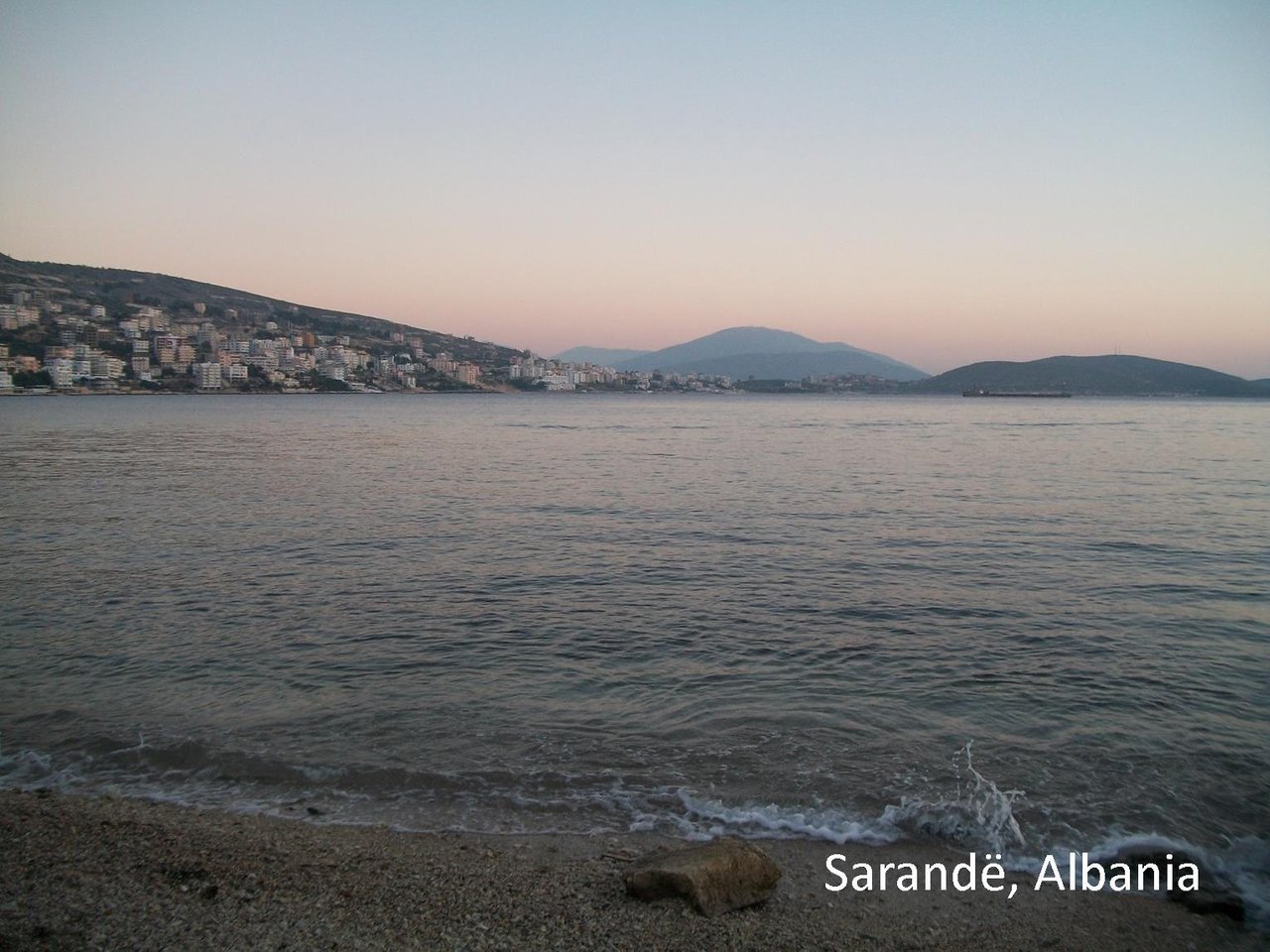
I always had an uneasy feeling about living long-term in a place where I would never be a citizen or be able to own land. These issues meant I would eternally pay for residency visas and work permits, and potentially own a home in a someone else's name, meaning I could easily lose my property if that person and I had a falling out. Cambodia just never felt like home despite my great efforts to assimilate. Despite these hurdles, I was able to maintain my visa, residency and work permits all the years I had previously lived there. During my 9th year in Cambodia my visa renewal was denied without reason. I went to all the appropriate government ministries trying to figure out why my visa was denied, but all doors were locked and closed, and hope began to fade. With time running out on my visa, and no visa renewal coming my way, I reluctantly left my family behind in Cambodia to avoid becoming an illegal alien in Cambodia. They couldn't join me due to the countless visa issues Cambodians have when trying to go abroad.
I labored in the USA for 5 long months awaiting a Suriname Immigration Visa, which I intended to later use to sponsor my family's immigration to Suriname. I hoped Suriname would give us a chance to remain a united family. Well, I mentioned earlier I had already been denied a Suriname Immigration Visa once before. This was that time. After all those months working in the USA to solve our crisis and get our family permanently reunified, and with only days before my flight back to Cambodia where I intended to scoop up the family and go to Indonesia to apply for their Suriname Immigration Visas in Jakarta, I received some terrible news from the Suriname Embassy in Washington D.C.. My visa had been denied, even though I had been coordinating with the embassy through the process, and provided all things requested.
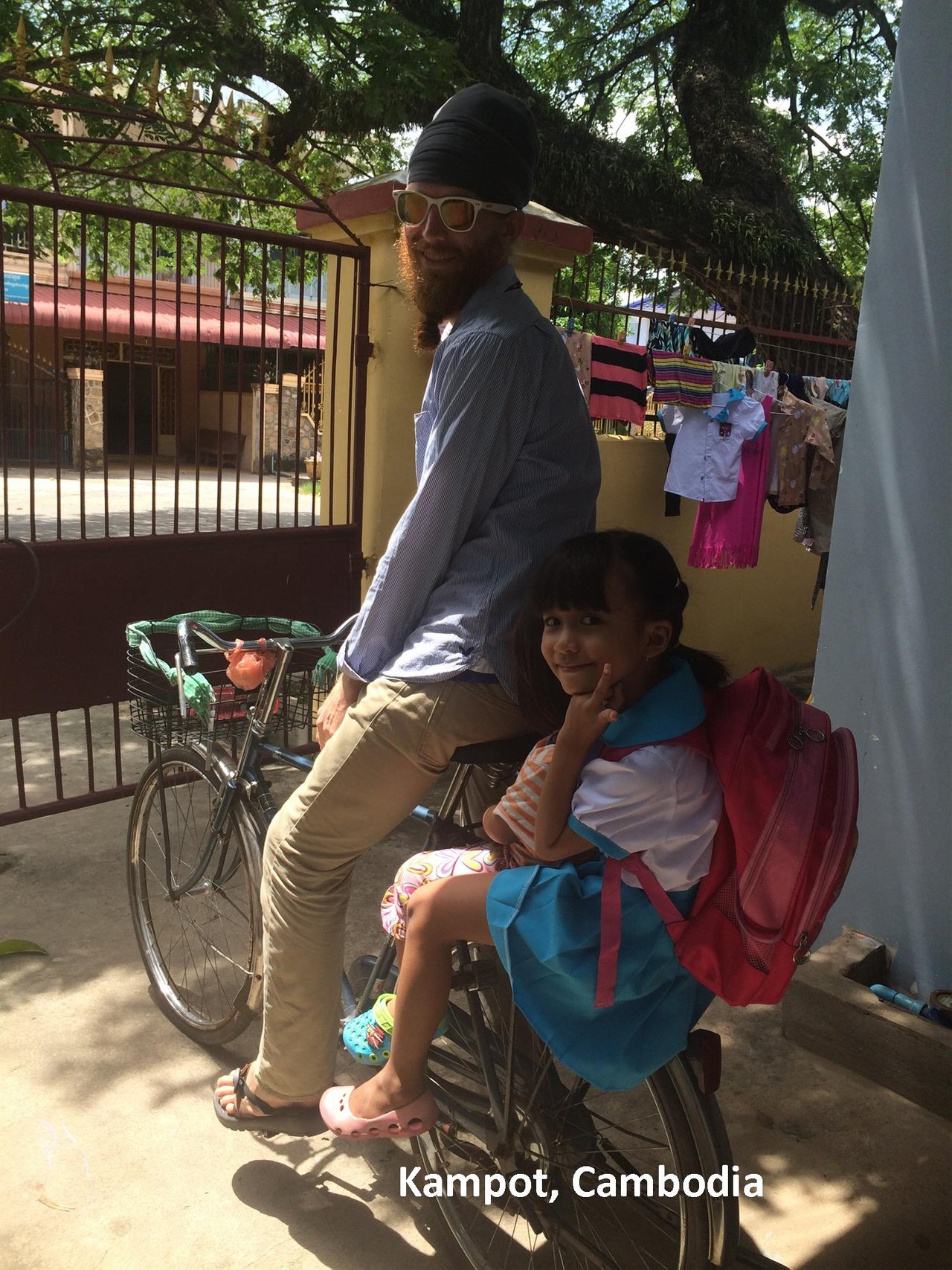
With this huge setback I flew back to Cambodia entering on a tourist visa with limited savings, and limited time in the country, not exactly knowing where "home" was going to be for our family. After all, going to Indonesia would be useless because I could no longer sponsor them as I didn't receive my visa. We immediately began researching all the countries in the world that would give a visa-on-arrival to Cambodian and American citizens, and also provide a chance at long-term residency without any kind of sponsorship or job offer. We ended up in Ecuador due to their 90 day visa-on-arrival for Cambodian citizens. We ultimately ended up having immigration problems in Ecuador which resulted in us coming to Suriname, for which the new e-Visa from VFS made possible for my Cambodian family members. It was a gift and a second chance for us to attempt Suriname immigration. That is basically the short story of how we ended up here in Paramaribo. The longer story is much more interesting and involves transit visa denials, multiple 20+hour layovers in various countries, being denied permission to board flights, a totally free 4-day-stay in a five star hotel and too much more to mention here.
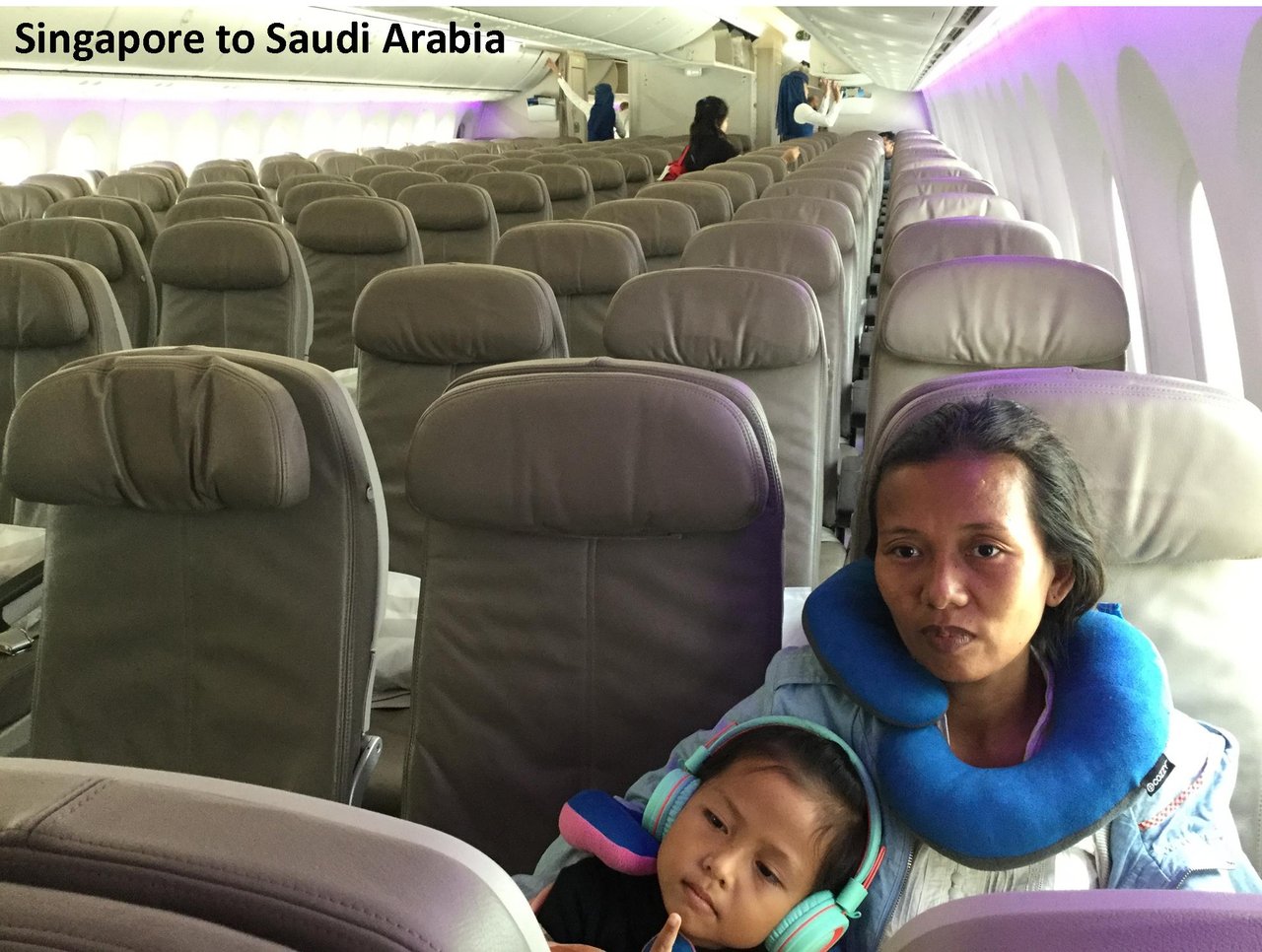
Would you ready my introduction below to learn more about me?
| MY INTRODUCTION |
I am originally from a small town in southern Indiana, where I was born and raised. There weren't many chances for travel as a young kid growing up in Indiana, and certainly no international travel. I remember in the 1980's, my brother and I received several boxes of 1960's era National Geographic magazines from a family member. These were the first things I remember which caused me to ponder what it might be like to live or travel outside the USA. I had a typical Indiana countryside childhood, growing up around corn, horses and coalmines. Upon graduation from high school I attended a nearby community college intent upon not going into debt from student loans, paying only for what credits I could afford.

Almost a year later I moved to Colorado and continued my community college education, studying Outdoor Recreation Leadership and Wilderness Studies at Colorado Mountain College in Leadville, Colorado. I still remained committed to being debt-free, but after 8 years studying credit-by-credit part-time in budget community colleges, and still without a degree, I was ready for a change. I didn't feel being a wilderness guide was part of my life path anyways, and cooking was my true passion, and what I was ultimately best at. I had helped to pay for these years of college mostly by cooking in restaurants, so why not throw myself into the culinary world 100%, right?
I did exactly that, quit college and began a full-time career in the culinary world. The money was okay, but the hours were long I was never passionate about the food I was cooking. I always enjoyed cooking vegetarian Indian and Thai food at home, but found myself cooking unhealthy and uninspired western food in my various culinary jobs throughout the USA. I dreamed of being able to someday cook and serve the foods I ate at home, and serve it from my own restaurant, but the startup costs were not anything I was going to be able to afford for the next 40 years.
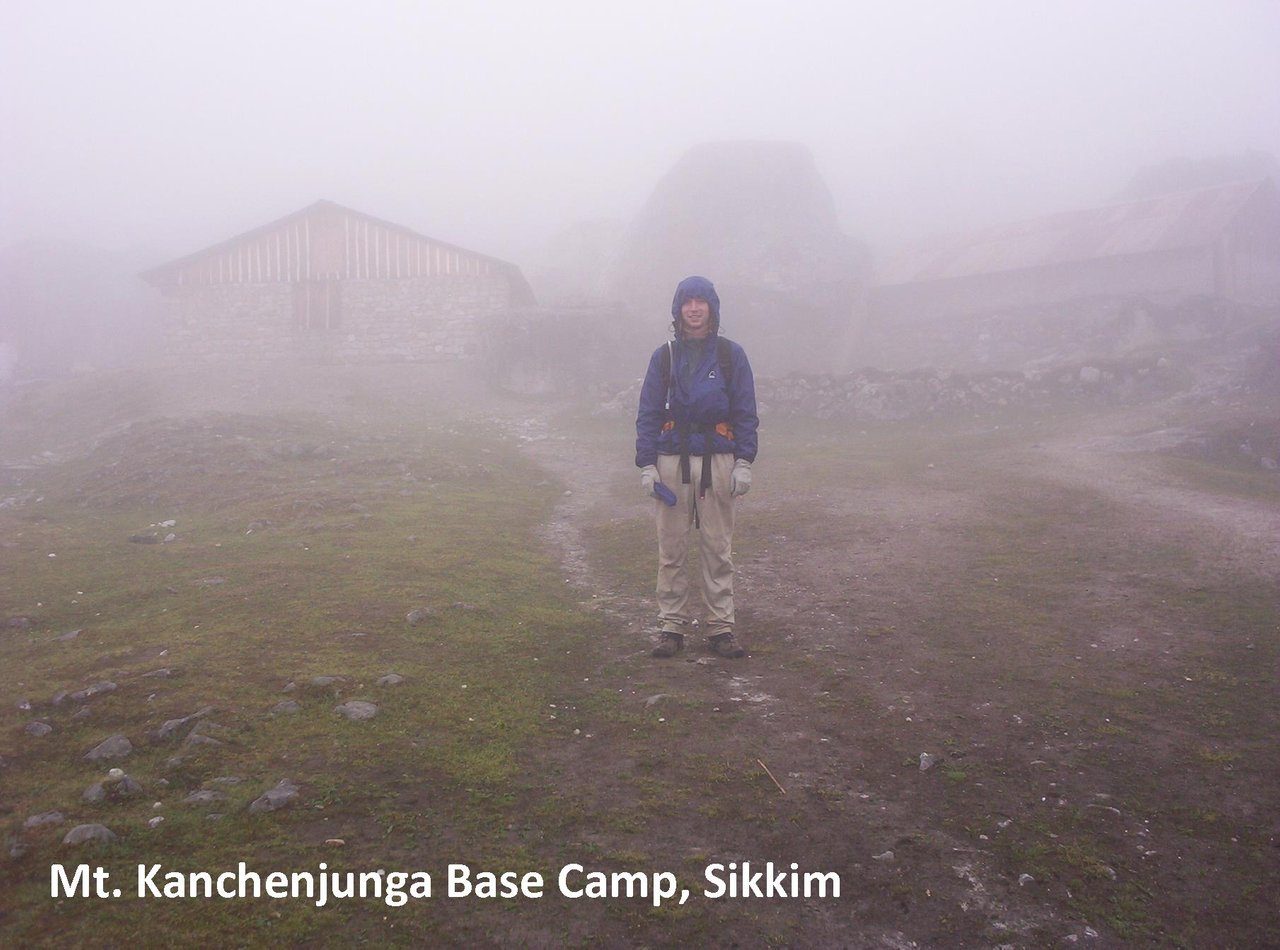
I had done a few international trips here and there by that time, managing two trips to western Europe and also a trip to India and Sikkim. These two experiences were enough to plant the seed in my my mind that possibly the "American Dream" was not in America, for me at least. After the suicide of my best friend and a few unhealthy relationships, I was looking for a major change. I moved back to Indiana to consolidate my life and carefully plot my next steps. It was while in Indiana I decided I could cut my living costs by building a mini-RV out of a Volkswagen truck, and live in it with my 2 dogs. I began construction on this mini-RV, and nearly finished it before making a decision that would change my life forever.
I bought a ticket to Thailand in hopes a three month long backpacking trip through southeast Asia would give me renewed vigor. I had a job offer restoring vintage Vespa scooters in Vietnam as well, in case I chose not to return home and found no other work. Restoring old Vespa and Lambretta scooters had always been a passion of mine, so I was excited at the chance for a career and scenery change. I had previously googled search terms such as "easiest visa without education" and "easiest foreign countries to get residency", and Cambodia was always at the top of my search results. I knew I would be passing through Cambodia on my way to Vietnam from Thailand anyway, so I'd have a chance to check it out.
Well, I arrived in Bangkok at Suvarnabhumi Airport in 2010 during the Red Shirt/Yellow Shirt protests and battles. There were constant street clashes and a curfew was in effect at that time. I arrived late and decided I would simply spend a night on the floor of the airport before plotting my next moves. A sleepless night was spent constantly receiving flyers about about raves and full moon parties throughout Thailand. It was the one night on the airport floor that convinced me that Thailand wasn't the place I was looking for. I immediately headed to the train station and was on my way to the Thai-Cambodian border.

I arrived in Poipet, Cambodia, where I finally could escape the hustle and bustle of Bangkok, and think about where to go and what to do in Cambodia, as I had pretty much arrived without any research, having planned a month or more in Thailand. Poipet was and is still by no means paradise. It's a rough border town with casinos, shady characters, and a lot of human trafficking. Regardless of this, the wild-west feeling of Poipet was alluring, and Cambodia in general felt like there was a lot of potential for micro-entrepreneurship. I struggled and eventually found my way in Cambodia, learning the language after some years, fell in love and out love, grew up a lot, worked many different kinds of jobs, and would eventually meet Sreypov, Srey Yuu and Sakana in 2016. We lived in Kampot, Cambodia, for 3+ years where we owned and operated a language school, an I-tal restaurant and a few other small businesses.
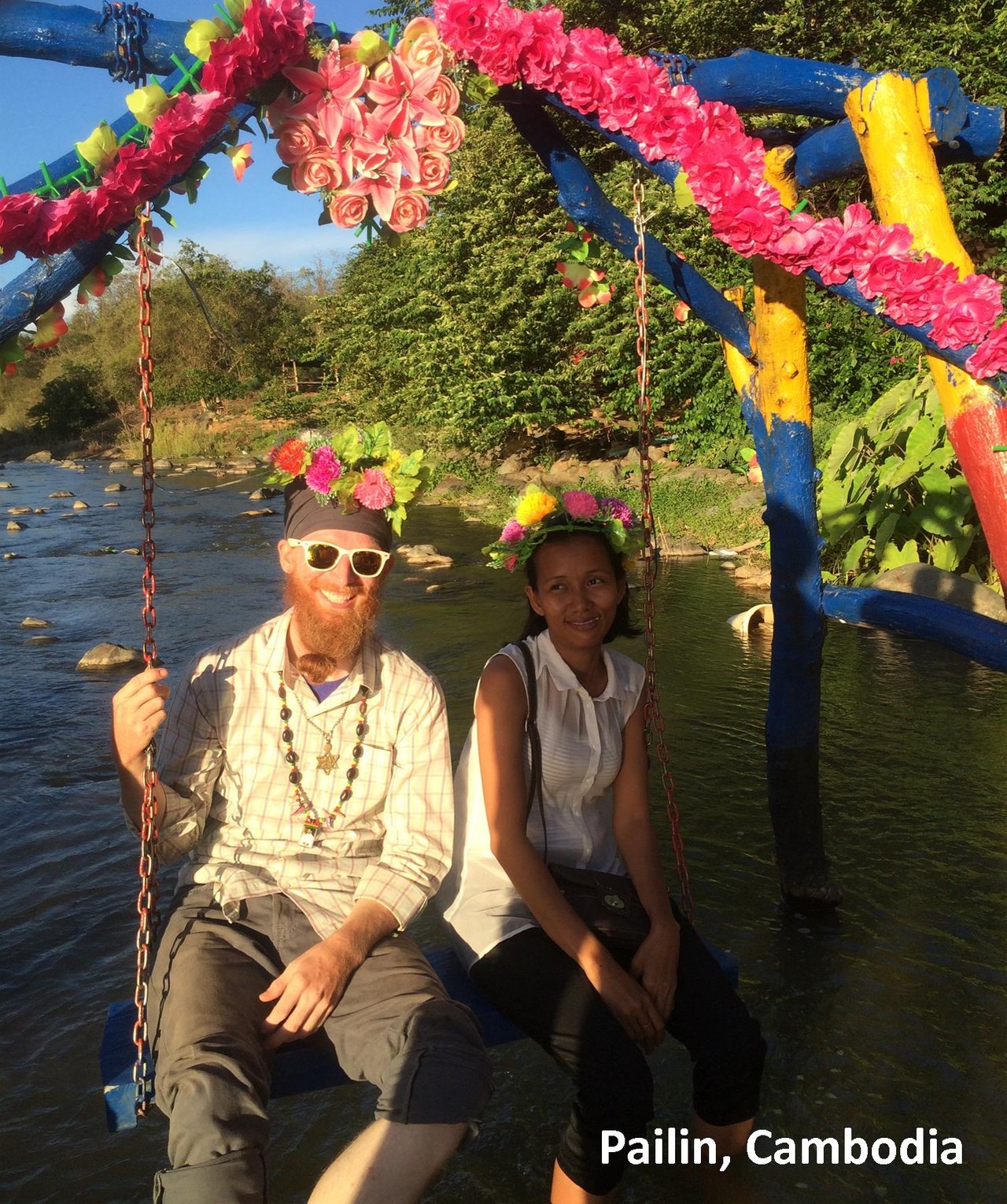
There are all kinds of interesting things that happened along the way to bring us here to 2019 in Suriname, all of which I hope to share with you through my Steemit blog, as well as more properly introduce my Cambodian family members. Thank you for taking time to read this introduction. I hope you stay tuned to find out more about our adventures through life.
Let me know what you think!
If you have any questions, feel free to ask me!
I'll do my best to answer you.
I care a lot about what my followers and the Steemit community at large think -- so feel free to leave a comment!
Follow me @justinparke

